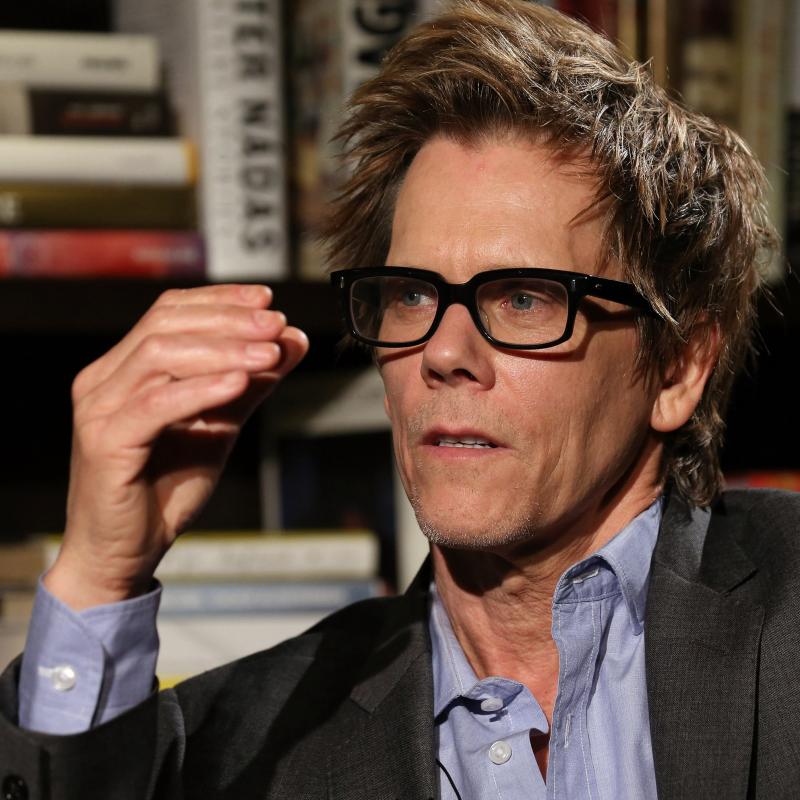Contributor
Related Topics
Other segments from the episode on October 8, 2003
Transcript
DATE October 8, 2003 ACCOUNT NUMBER N/A
TIME 12:00 Noon-1:00 PM AUDIENCE N/A
NETWORK NPR
PROGRAM Fresh Air
Filler: By policy of WHYY, this information is restricted and has
been omitted from this transcript
* * * * * * * * * * * * * * * * * * * * * * * * * * * * * * * * * * *
Review: New movie "Mystic River"
TERRY GROSS, host:
The new movie "Mystic River" is adapted from Dennis Lehane's best-selling
mystery novel and directed by Clint Eastwood. It stars Sean Penn, Tim Robbins
and Kevin Bacon as former childhood friends drawn together as adults by a
terrible event. Film critic David Edelstein has a review.
DAVID EDELSTEIN reporting:
Dennis Lehane is one of a new breed of urban noir writers who manage to tell
you more about how cities work than many so-called literary novelists do.
After a series of deeply felt but conventional detective thrillers set in
Boston, Lehane took a swing at the moon in "Mystic River," a book that
revolves around a murder investigation but that veers from the procedural into
something deeper and more tragic. As a kid, Lehane got picked up by two
plainclothes policemen for street fighting, but realized later that he'd never
seen their badges. They could have been anyone.
In the prologue to "Mystic River," set in 1975, three boys--Jimmy, Sean and
Dave--are writing their names in wet cement when two men claiming to be cops
approach. They order the less self-assured Dave into their car and, in
Lehane's nightmare revision of his own past, they're not cops. They rape the
boy over the course of four days before he manages to escape.
The bulk of "Mystic River" is set 25 years later. Jimmy, the toughest of the
trio, is an ex-con whose gone straight and owns a small market. Sean is a
homicide detective and Dave--well, Dave is damaged goods. He's a loving dad
and husband, but he's haunted and deeply unstable. The book is about how that
past horror ripples into the present, deforming all the lives in this
tight-knit, working-class community.
Almost every Clint Eastwood movie opens with a floating helicopter shot over a
city or a small town. But "Mystic River" is the first time that the shot has
a strong connection with what the film is actually about. As the camera
glides over the Mystic toward Boston, you can practically see the word `fate'
superimposed over the dark waters.
Eastwood began with an extremely faithful script by Brian Helgeland. It has
its hammy patches, but it hits Lehane's emotional beats brilliantly and
Eastwood gives his actors the space and the time they need to put the
characters' torment into your bloodstream.
Sean Penn is Jimmy, whose exuberant 19-year-old daughter turns up shot and
beaten to death after a night drinking with her girlfriends. As fate would
have it, the investigative detective is Sean, played by Kevin Bacon. He and
his partner, Whitey, played by Laurence Fishburne, have to keep the volatile
Jimmy and a pair of local hoods known as the Savage brothers from finding the
killer before they do. Tim Robbins plays the damaged Dave, who watches
Jimmy's daughter dance rhapsodically on a bar the night she's
murdered--watches longingly, then comes home to his wife a few hours later
covered in blood.
Every actor down to the smallest bit part is impressive, but the film is a
special triumph for Bacon, who holds the formulaic police stuff together while
also suggesting the subtle ways that Dave's kidnapping left him broken, too.
Then there's Sean Penn, the most fearless actor of his generation.
(Soundbite of "Mystic River")
Mr. SEAN PENN: (As Jimmy) When I got out of the joint, you know, after Rita
died, I remember I was more afraid of my little daughter than I ever was of
being in prison. I loved her the most. When we were sitting in that kitchen
that night, it's like we were the last two people on Earth, you know,
forgotten, unwanted. Dave, I can't even cry for her. My own little daughter
and I can't even cry for her.
Mr. TIM ROBBINS: (As Dave) Jimmy, you're crying now.
Mr. PENN: Damn. Damn.
EDELSTEIN: Eastwood keeps Penn isolated in the frame and his stillness is
pregnant and scary. Jimmy can't be fully himself until he's violent and then
when he gives into his emotion, he hits notes of animal agony that haven't
been heard since the young Brando.
The film is steady, grim, maybe too deliberate. Yet it turns you inside out
with grief. In the '60s and '70s, Eastwood virtually created the vigilante,
body count genre. He made killing on screen a kick. But "Mystic River"
builds to an act of vigilante murder that's impossible to bear. Eastwood
taught us to live with violence on screen. Now he's put the horror back and
made his finest film.
GROSS: David Edelstein reviews films for FRESH AIR and the online magazine
Slate.
(Soundbite of music; credits)
GROSS: I'm Terry Gross.
(Soundbite of music)
GROSS: On the next FRESH AIR, truth, war and consequences. We talk with
journalist Martin Smith about his new PBS "Frontline" documentary that
investigates the infighting between the Pentagon, the State Department and the
White House over intelligence information about weapons of mass destruction
and planning for postwar Iraq.
I'm Terry Gross. Join us for the next FRESH AIR.
Transcripts are created on a rush deadline, and accuracy and availability may vary. This text may not be in its final form and may be updated or revised in the future. Please be aware that the authoritative record of Fresh Air interviews and reviews are the audio recordings of each segment.

